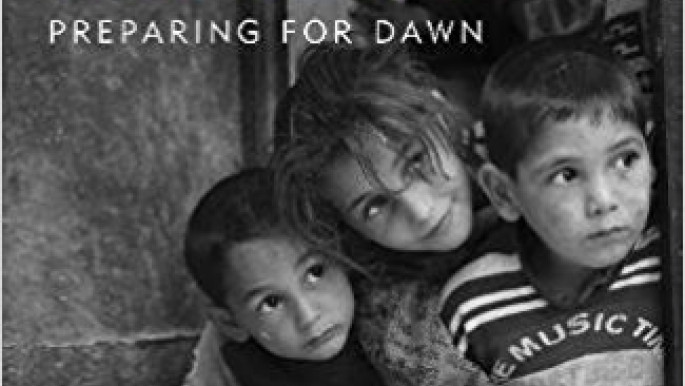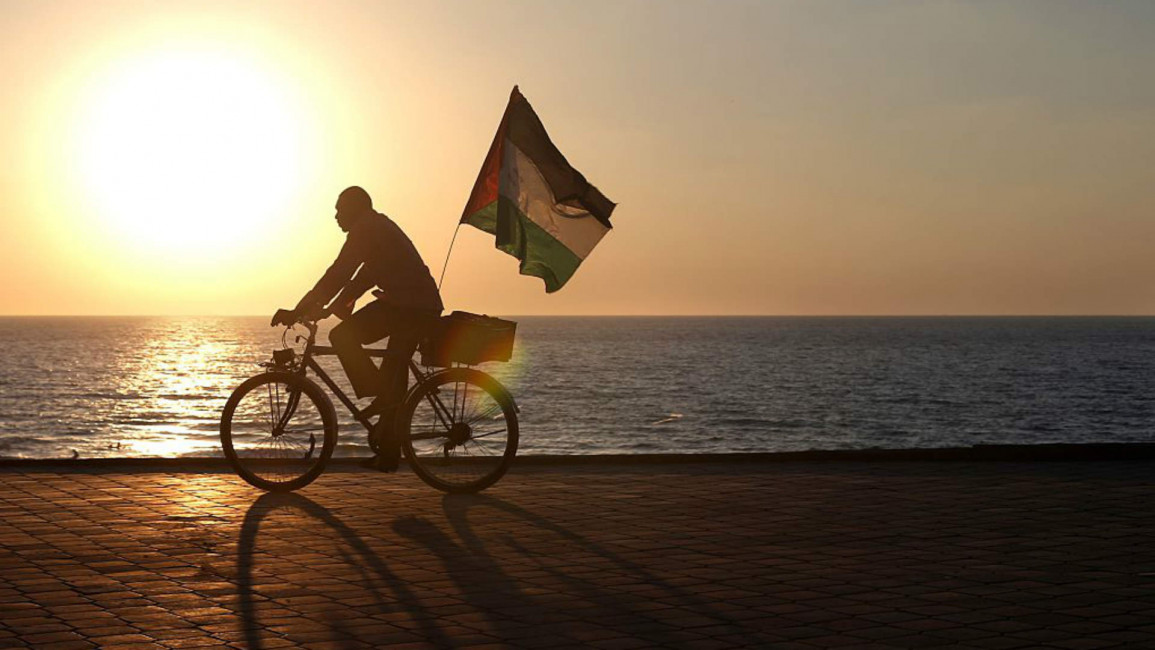
Donald Macintyre's 'Gaza: Preparing for Dawn': An incisive account
The shopkeeper made an impression on Macintyre, for he returned to see him 14 years later, to find he was still fixing car and truck engines, undeterred by the barbaric Israeli-imposed blockade that has endured since 2007.
Bahtiti's resilience is shared by many others Gazans who Macintyre encountered (before, during and after serving as Jerusalem correspondent for The Independent in the years 2004-2012), all of whom have helped inform his deeply discerning account of the enclave in his recent book "Gaza: Preparing for Dawn".
While Macintyre offers his book as a platform for many voices, his own one authoritatively comes through in his persistent interrogation of the overarching question: How did Gaza get so bad?
Much like Romeo and Juliet, which was, as Macintyre writes in his prologue, removed from the school curriculum across Gaza for fear of promoting suicide to an already psychologically disturbed youth, Gaza is a tragedy that has been unfolding since the 1967 occupation, more recently underpinned by a war against opposing factions: Hamas and Fatah.
In Chapter 6, Macintyre describes the January 2006 legislative council elections (the second time in Palestinian history that these had taken place) as a monumental "turning point - arguably the turning point - in Gaza's fortunes"; that is, a turn for the worse.
 |
Most difficult to read are his lucid and incriminating descriptions of Israel's repeated massacres on Gaza, shielded behind what the Knesset calls 'Operations' |  |
It was not Hamas that won, but Fatah that lost.
Embroiled in internal conflict and running a "deeply inferior" campaign for a population sick and tired of the legislative council's failure to address basic local issues, it was easy for Hamas to pull the rug from under Fatah's feet.
 |
|
It is as though, for the rest of the book, Macintyre were gesticulating a frustrated face-palm in his shrewd assessment of how the Quartet, having "heavily promoted the elections", responded to Hamas' fair-and-square victory.
Rather than open dialogue with the newly elected party - one that was willing to participate in talks, especially along the reasonable lines of the 2002 Arab Peace Initiative - the Quartet adopted a tough line that, for starters, followed Israel's lead in cutting funding as soon as April of 2006.
While Macintyre's frustration stems from how "counter-productive" this hardline approach was; for fundamentally pushing Hamas into the arms of Iran - his sympathies lie with the Gazans who are still being collectively punished for their crime of having voted in Hamas in January 2006.
For over a decade, Gazans have endured a barbaric blockade with crossings firmly shut by Egypt from one end and Israel on the other. Israel has dictated exactly what has been allowed to enter and leave Gaza, from porridge to people.
Documenting his visits to the destitute yet still welcoming homes of many Gazans, Macintyre pauses to consider the bleak contents of one mother's fridge, finding a measly bag of bread-crusts and three olives, which must feed the mouths of her 10 hungry children.
It is not that all Gazans are starving on the streets, Macintyre surmises, but that they have been deprived of living with even a morsel of basic human dignity.
At other times, the author finds himself standing in the rubble-strewn streets where there are no homes left standing at all. Most difficult to read are his lucid and incriminating descriptions of Israel's repeated massacres on Gaza, shielded behind what the Knesset calls "Operations".
Israeli army soldiers live in a permanent state of paranoia, spurred on by mantras enforced by higher-commander officers such as "if you're not sure, shoot". This has resulted in the compulsive killings of innocent Gazan civilians, some of whom simply did not answer their front door quickly enough to allay Israeli solders' suspicions.
 |
Israel has dictated exactly what has been allowed to enter and leave Gaza, from porridge to people |  |
Towards the end of Part One of the book, Macintyre maximises on descriptive prose to remind the world of the carnage Gaza has endured, particularly over the past three years; the image of a "father's body stuck together with the still smouldering bodies of Mahmoud's three younger brothers, seemingly having hugged them to him in his last seconds", is indelible.
Part Two - the last 60 pages - envisions an optimistic and not unfeasible denouement to Gaza's tragic tale. Writing prior to the Hamas-Fatah reconciliation deal, Macintyre presages that, with the publication of Hamas' new and reconciliatory charter, there may be "a reason for - at last - engaging with Hamas".
Whatever may come of these negotiations in the foreseeable future is incidental to the obligation of the international community to act now, and use its capacity to end the siege.
On this, Macintyre, against all odds, remains hopeful.
Yasmin Ibrahim is a British-Palestinian research graduate from King's College London and freelance journalist.
Follow her on Twitter: @Yasmin_lb1
Opinions expressed in this article remain those of the author and do not necessarily represent those of The New Arab, its editorial board or staff.


![President Pezeshkian has denounced Israel's attacks on Lebanon [Getty]](/sites/default/files/styles/image_684x385/public/2173482924.jpeg?h=a5f2f23a&itok=q3evVtko)



 Follow the Middle East's top stories in English at The New Arab on Google News
Follow the Middle East's top stories in English at The New Arab on Google News


